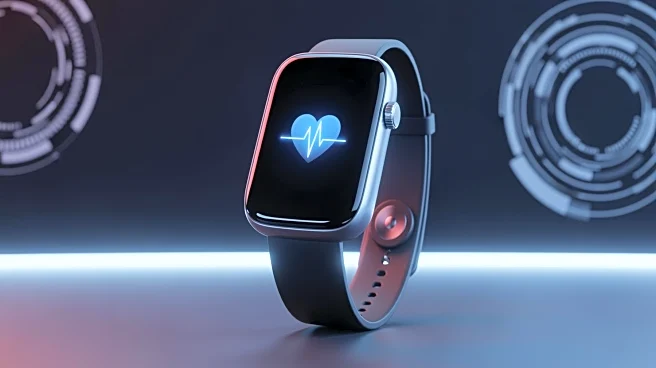What's Happening?
The global market for wearable cardiac devices is expected to grow significantly, with projections indicating it will surpass USD 32.16 billion by 2034. This growth is driven by the increasing prevalence of cardiovascular diseases and advancements in remote
patient monitoring technologies. North America currently holds the largest market share, while the Asia Pacific region is anticipated to experience the fastest growth. The market includes products such as smartwatches, ECG patches, and biosensors, which provide continuous heart monitoring and facilitate early detection of cardiac issues. The integration of artificial intelligence and wireless connectivity enhances diagnostic accuracy and patient engagement.
Why It's Important?
The expansion of the wearable cardiac devices market is crucial for improving cardiovascular healthcare. These devices offer real-time heart monitoring, which can lead to early detection and management of cardiac conditions, potentially reducing hospital readmissions and healthcare costs. The market's growth reflects a shift towards preventative care and remote patient monitoring, which are increasingly important in modern healthcare systems. As more devices receive regulatory approvals and become eligible for reimbursement, their adoption in clinical and consumer markets is expected to rise, benefiting patients and healthcare providers alike.
What's Next?
The wearable cardiac devices market is likely to see further integration with digital health ecosystems and electronic health records, enabling seamless data sharing and personalized care plans. As technology advances, devices are expected to become smaller and more comfortable, encouraging long-term use. The consumerization of medical-grade devices will empower individuals to take an active role in monitoring their heart health. Additionally, regulatory approvals and expanded reimbursement policies will continue to drive market adoption, with significant growth anticipated in regions like Asia Pacific.
Beyond the Headlines
The wearable cardiac devices market presents ethical and regulatory challenges, particularly concerning data privacy and the accuracy of health monitoring. As these devices become more prevalent, ensuring they meet stringent regulatory standards will be essential to maintain trust among clinicians and users. The integration of AI in these devices also raises questions about the role of technology in healthcare and the potential for machine learning to enhance diagnostic capabilities.















